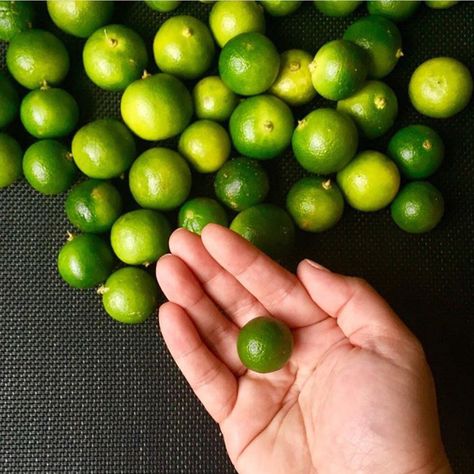Flor G. Tarriela l March 8, 2024 l Business World

About 25% of the Philippine workforce is employed in agriculture, yet it contributed less than 10% to GDP in 2022. Agriculture’s share in GDP is on a declining trend, from 9.7% in 2018 to 8.9% by 2022. How sad that the average age of a farmer is more than 60 years old, farmers’ children don’t go into farming anymore due to hard work and little pay.
But there are pockets of success in farming such as the MASIFAGCA Pangkabuhayan, Inc., a calamansi-producing farmer group from Nueva Ecija. Calamansi is a small citrus fruit native to the Philippines, with many uses (food, juice, cleaning agent and even as a mosquito repellant) and health benefits (boosts immune system, lowers cholesterol and stimulates growth).
It all started when calamansi farmers from Nueva Ecija became members of TSPI and its Palayan Program (TPP) in 2016. TSPI is a Christian microfinance nongovernment organization. TSPI offered access to farmer loans, microinsurance and social services and eventually connected the farmer group to Jollibee Food Corp., one of Asia’s largest fast-food companies. TSPI entered into a partnership with Jollibee Group Foundation to help small farmers through its farmer entrepreneurship program become agri-enterpreneurs, with MASIFAGCA its pilot project, enrolled as a fresh vegetable supplier.
How does it work? The Jollibee foundation teaches farmers proper production techniques and technical skills through training programs, seminars and by getting them to visit other farms. TSPI provides loans and teaches them the value of paying these on time. TSPI’s Sambayanihan “Usapang Paglago” also influenced farmers to look up to God during trying times.
MASIFAGCA experienced different challenges including pre- and post-production management, marketing and natural calamities. Members struggled to sort and pack calamansi in their first delivery of 262 kilos of the produce in 2018 as part of its test marketing. The first delivery is usually a reason to celebrate, but it caused conflicts, leading some members to leave the group. Fortunately, the group persevered and progressed in learning and improving their processes.
In 2019, a major setback occurred. Ants were found in delivered calamansi packs. The farmers thought some ants in food packs were acceptable, but were shocked when the deliveries were rejected, resulting in more than P100,000 in losses. They later tried to improve and strictly comply with Jollibee’s standards.
Through the pain, TSPI supported and prayed with the farmers. Policies and processes were strengthened. The farmers got a certification for good agriculture practices (GAP), continued marketing with Jollibee and were linked with other institutional buyers.
Then the coronavirus pandemic happened in early 2020. TSPI coordinated with Jollibee to accept MASIFAGCA deliveries to meet demand in Metro Manila. Monthly deliveries went up from an average of 5 tons of calamansi to about 8 tons, harvested from 300 trees per member, with a monthly average gross income of P600,000. At the height of the pandemic and against all odds, past due obligations with TSPI were fully paid.
MASIFAGCA has gone a long way from being farmers to being agripreneurs and even an award-winning group. It was a Bronze Awardee at the Jollibee Global Supplier Summit in 2021 and a Model GAP-certified calamansi farmer group. We hope to see the MASIFAGCA model replicated all over the country, not just with calamansi but with other produce. As consumers, let’s buy local and support our farmers.
What are the valuable lessons that made MASIFAGCA rise above the challenges?
Good governance and leadership to stand up for the group. A nurturing leadership with good governance best practices helped to attain unity among members and stay focused on the ultimate goal — to produce quality calamansi.
Determination and persistence. Each struggle and rejection became steppingstones. The “ant incident” was a “fail forward” lesson. Despite the challenges, they pressed on and didn’t give up.
Innovation and continuous education. The farmers were open to continuous education, whether formal or experiential. By attending seminars and visiting farms to gain confidence and share best practices, they developed good habits and discipline. TSPI has introduced digitalization, and they are trained to use an in-house mobile application platform.
The strong partnership and collaboration with Jollibee Foundation in teaching technical skills, while loans and transformational support from TSPI contributed to their success.
Happy Women’s Month! Congratulations to the women leaders in this success story: Jollibee Foundation President Gisela Tionson, TSPI Executive Director Alice Cordero, TPP Business Manager Lorena Mandanas, MASIFAGCA President Emelita Macaso and Vice President Imee Patingo. Mabuhay!
The views expressed herein are her own and does not necessarily reflect the opinion of her office as well as FINEX. Photo from Pinterest
*** Flor G. Tarriela is a former PNB chairman and now serves as a board adviser. A former Finance undersecretary, she is a lead independent director at Nickel Asia Corp., a director at LTG, Inc. and FINEX. A gardener and an environmentalist, she founded Flor’s Garden in Antipolo.

